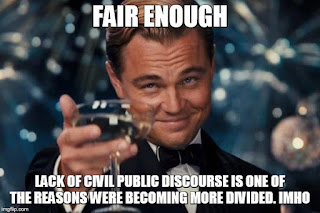How to Detect Greenwashing 101
If you have been to an event or shopped retail within the past decade, you may have noticed some companies claiming they partake in sustainable efforts. While some of these companies are telling the truth, some are unfortunately greenwashing their consumers or attendees.
If you are unfamiliar with greenwashing, Meetings, Expositions, Events & Conventions refers to greenwashing when a company provides false or misleading information about being green (Fenich, 2019). A venue for an event may state they are practicing sustainability through using biodegradable plates when they really are not using this type of plate, or they used it once. It is unfortunate that some companies partake in greenwashing. In order to spot greenwashing issues, I decided to create a list of possible ways to detect this issue.
- Complete basic research on the company
- If you are able to find a website for the company, read through their
About page and their values. By taking the time to read through their
website, you will be able to read what environmental efforts the company
claims to partake in.
- If you are curious about the company's efforts, contact the company through email or phone number. You could ask for the company to explain more about their sustainable practices, as well as how the company plans to continue to stay green.
- Let's say the company states they donate used products to a shelter instead of throwing the items away. You can contact the shelter to see if the company has partnered with the shelter and has sent donations.
I know you are probably wondering how extreme some of these steps are for detecting greenwashing. The timing of greenwashing in I'm Right and You're an Idiot is perfect in that this topic was just discussed in my event management course. My event management course described how it is important for event planners to delve deep into identifying greenwashing, as well as be able to understand sustainable practices. It is crucial that people are not falsely told they are at a venue that supports the environment while the venue does not truly take sustainable efforts.
Why do you think some companies partake in greenwashing? Why do you think some people have an under-reaction to environmental issues?


I think companies fake environmental concern mostly because it's "in" and "hip" right now. If people can hide it well, they see no harm in deceiving others for business and profit, because this world runs on money and money alone. I think many people don't take environmental issues as seriously as they should due to a lack of education and background on the issues. As a science major, I understand how difficult it is to break down the bonds in plastic for recycling, or the chemical and biological effects of an overabundance of greenhouse gases, but the average person who, say, works at Walmart or in an office didn't receive that specialized education and thus needs more assistance in understanding why these issues are issues.
ReplyDeleteAdditionally, many of the effects aren't as easily quantifiable or observable to an individual person with no scientific equipment, so believing these issues stems from a sense of trust in scientists--which is something we don't have, as stressed many times in Hoggan's book.
I believe that scientists should work together with educators and speakers to fully educate their audience--don't treat them like they're stupid, just like you're trying to fully inform them, and for their own good, not your own. They need to attempt to quantify claims so that audiences will be more alarmed, and thus, be more receptive to proposed solutions.
I always think it is interesting when companies greenwash their consumers and customers. How does it benefit society? I think the only thing it really does is boost a persons feeling of morality. It is like a trick to the mind, causing the person to think they are doing good so it is like a boost of endorphins and serotonin or something (I am not a science person). However, then you just feel bad if you find out you have been greenwashed by the company. Greenwashing is part of the reason why I prefer to give my time rather than my money to help organization. That, and I am a college kid and money is not always available to give. But I find giving my time easier because then I know what I am doing and how I am making a change whereas if I were to give financially, how do I know where my money goes? Hopefully the future will bring more sincere companies and less greenwashing.
ReplyDeleteI think the simple answer is that companies greenwash to keep customers engaged, even if it's less than the whole truth. The more human companies appear to be, the more customers will want to deal with them and access their products. As far as reacting to environmental issues, I recall one part of the chapter where activists focused on the plants and animals affected instead of tying it to human consumption. While that is not a bad way to go, in order to make most humans do something of their own volition you have to appeal to their inherently selfish nature.
ReplyDeleteIt's the same reason that companies slaps rainbows on everything for pride month--to engage their customers. Large companies hear things like "Why buy from this company when you could buy from your local small business?", and say "well that is competition and we cannot have that.". If a large company can take the time out of their day to care about "smaller" problems like their customers, they will bring in more money--the only green they are concerned about. However, if it is sincere, maybe their attempt to be green looks so small that it's not worth trying and that is what is leading them to lie. We're all about having instantaneous results and if that isn't attainable, then lying to make it seem like it is to be "in" is what it becomes.
ReplyDeleteI think companies greenwash because they want to look good like they are doing something for the planet, but do not want to lose money or put in actual effort to make necessary changes for the planet. It is like stores selling shirts that say "save the bees" but they also sell produce that use harmful pesticides that kill bees, or they do not donate any amount of money to help save the bees. They want to maximize their profit, and actually making an effort would change that. I think they are also kind of waiting for other people to make changes or ride out this "phase" of being green or until the problem is solved or it is too late and they can continue being lazy.
ReplyDeletePeople really do just take whatever companies say at face value. In Last Week Tonight’s recent show on micro plastics, I believe they mentioned that CocaCola has made various promises over the last few decades regarding reducing their plastic waste. They make these ambitious promises, and then don't even try to make them happen.
ReplyDeleteIt's strange to me cause I imagine that has a tangible impact on their public image. Maybe they get some positive press when they make that promise, but as they consistently fail to deliver it makes people trust them less and less. And! How come they get no sort of repercussion for failing to deliver? If a company’s promise isn't legally binding, why should anyone care about it? Or rather, why is greenwashing so consistently successful?
Perhaps I have higher hopes for people than I should.